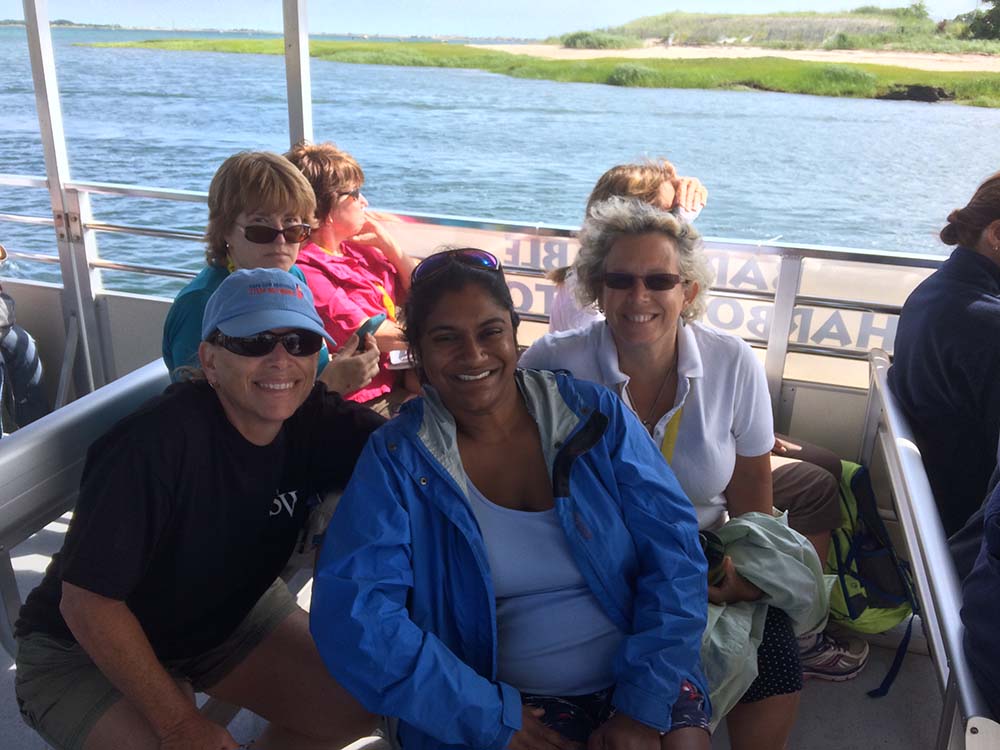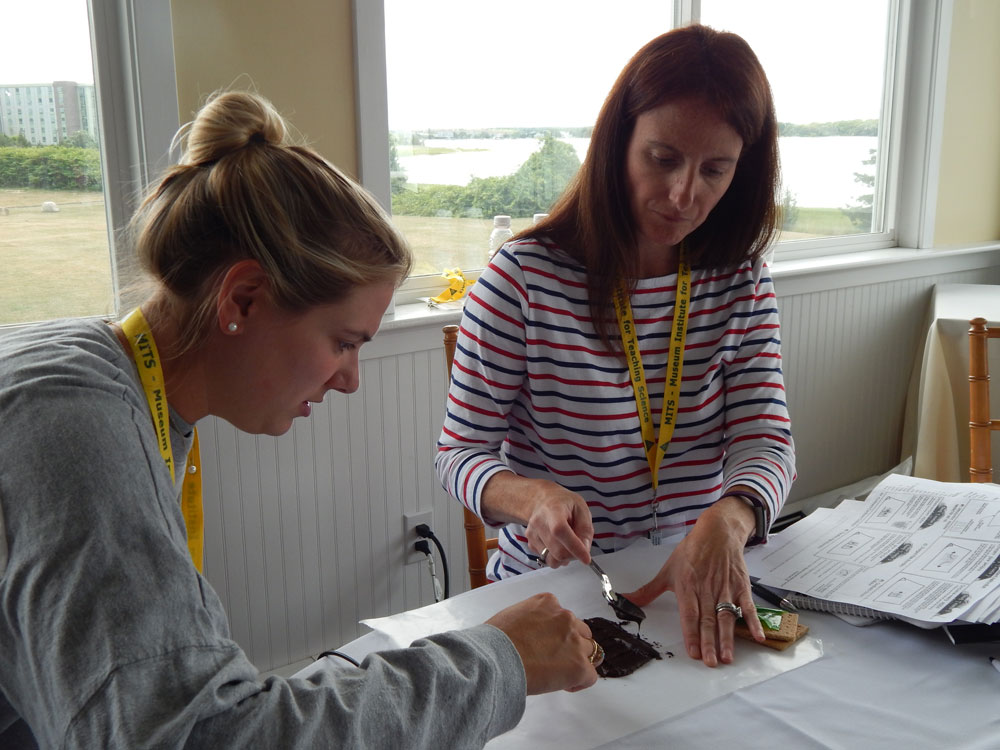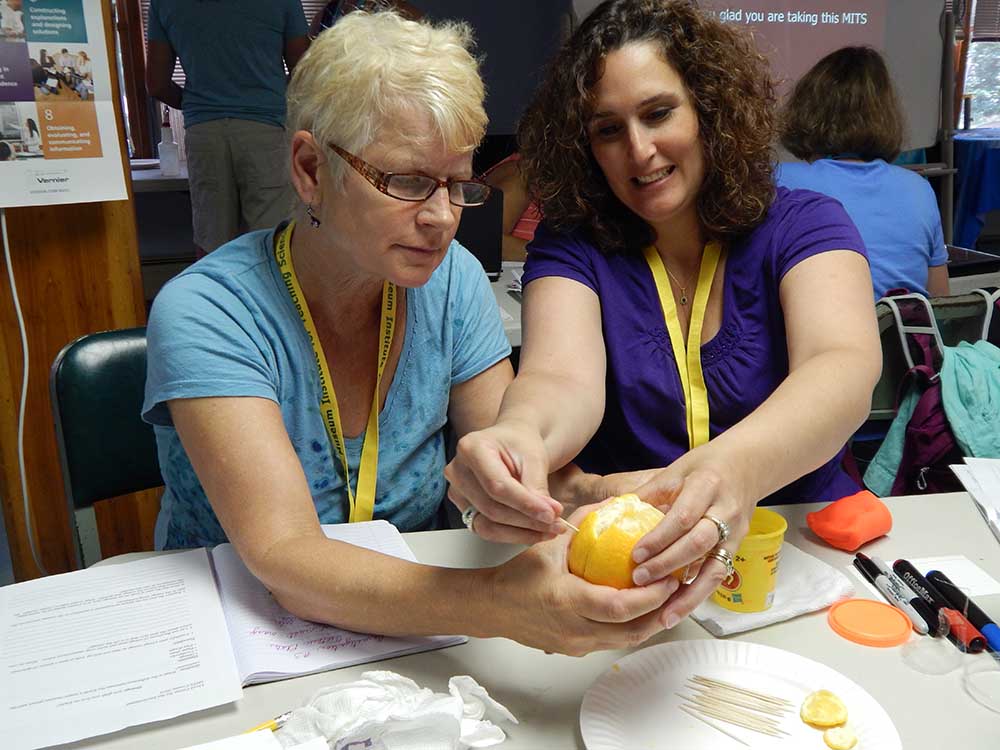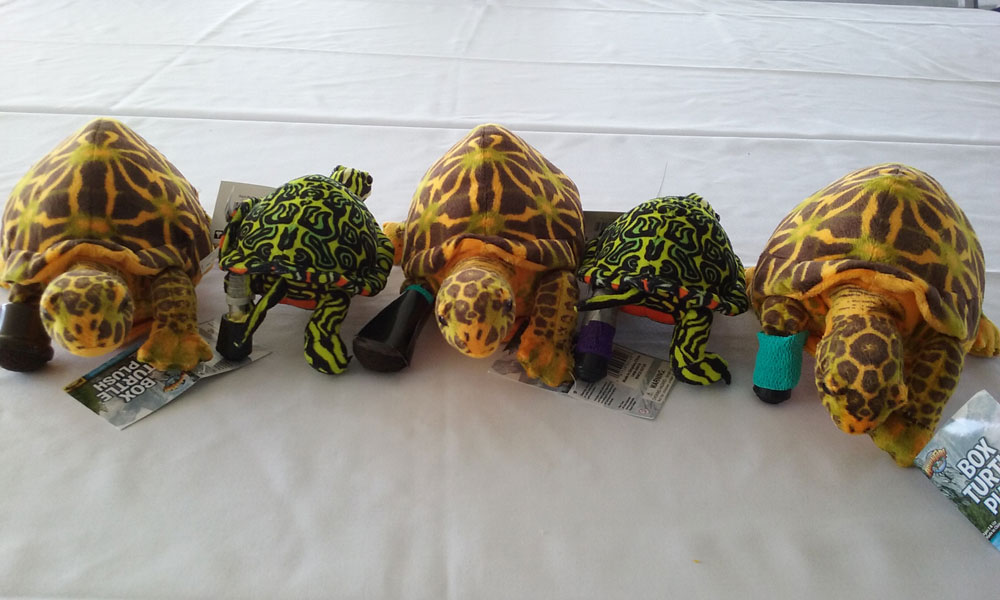Wednesday, January 11, 2016
For Immediate Release
Fall Call-back Reunites Teachers for Professional Share-out
As a follow-up to their summer experience, teacher participants in the Museum Institute for Teaching Science 2016 Summer Professional Development Institutes gathered this fall at regional host sites throughout Massachusetts to share their recent experiences incorporating more inquiry-based instruction into their classroom curricula.
fall at regional host sites throughout Massachusetts to share their recent experiences incorporating more inquiry-based instruction into their classroom curricula.
At the Southeast and Cape Cod Regions’ call-back session, the teachers talked about the different inquiry-based activities that they designed based on summer institute content and subsequently implemented – including designing water filters, modeling plate tectonics, explaining ocean tides, and investigating water density. They also shared resources they find useful, ranging from web-based magazines and educational videos to mobile science apps and field trip locations.
Call-back participants described both successes and challenges they faced when introducing inquiry-based lessons. Some  teachers reported that their students have become more comfortable designing and leading their own investigations. Those same teachers found that their students were more engaged in lessons when they chose which problem to solve and determined the steps to the solution on their own. The biggest challenge was that while students took hold of their own learning, they also took more time to complete activities.
teachers reported that their students have become more comfortable designing and leading their own investigations. Those same teachers found that their students were more engaged in lessons when they chose which problem to solve and determined the steps to the solution on their own. The biggest challenge was that while students took hold of their own learning, they also took more time to complete activities.
“It is a work in progress, but as I add more choices into most activities, I am learning how to deal with time constraints that it brings,” one teacher said.
Success stories involved students working collaboratively to gain a deeper understanding of the big picture concepts. The teachers shared their students’ reactions to more open inquiry activities:
“The students are so excited and enthusiastic about our tide pool visits and nature walks around our school neighborhood. They enjoy sketching and writing about their  observations!”
observations!”
“Our greatest success so far would probably be the enthusiasm and excitement shown by the students. They are very invested in all our investigations.”
“The successes to me are just hearing the conversations between students when we do inquiry. Hearing the ‘Look at this!’ ‘Wow!’ ‘This is cool’ and then positive feedback from the students.”
In an activity that illustrated some advantages of inquiry-based investigations, the teachers were asked to design a prosthetic limb for a rehabilitated turtle patient. In small  groups, they tested materials (foam, tape, gauze, wheels and even chair leg caps) as they determined possible solutions to their turtle’s mobility problem. Questions arose as teachers considered how their students might investigate the same sort of problem, and while the focus was on mobilizing turtles, strategies to address classroom time constraints evolved from the conversations. At the close of the session, teachers walked away with strategies to increase learning and maximize time while allowing their students more freedom to explore science topics.
groups, they tested materials (foam, tape, gauze, wheels and even chair leg caps) as they determined possible solutions to their turtle’s mobility problem. Questions arose as teachers considered how their students might investigate the same sort of problem, and while the focus was on mobilizing turtles, strategies to address classroom time constraints evolved from the conversations. At the close of the session, teachers walked away with strategies to increase learning and maximize time while allowing their students more freedom to explore science topics.
###
The Museum Institute for Teaching Science specializes in providing hands-on, minds-on, inquiry-based STEM professional development for formal and informal educators. For more information, visit www.mits.org or call 617-328-1515.
